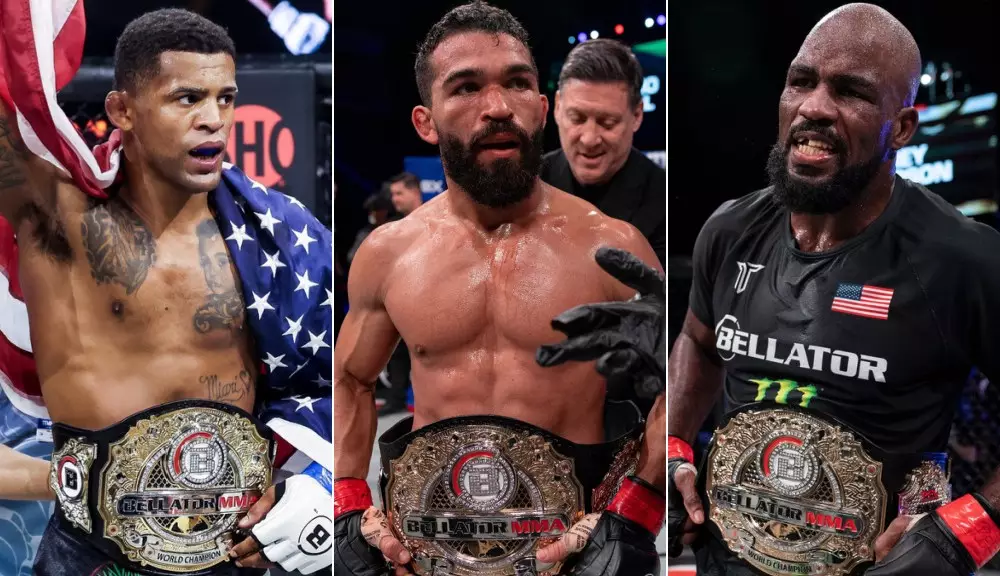The Professional Fighters League (PFL) emerged as a dynamic force in mixed martial arts (MMA), boasting a commitment to being a pro-fighter organization, particularly following its acquisition of Bellator. However, a disturbing trend has surfaced: a growing chorus of complaints from athletes who feel marginalized and uninformed about their futures. Prominent fighters, including current champions Patchy Mix, Corey Anderson, and Patricio Freire, have voiced their frustrations about the lack of communication and opportunities since the merger. This article delves into the implications of these issues for the fighters and the organization itself.
On social media, fighters have not held back regarding their dissatisfaction with the PFL’s management style. Corey Anderson, a light heavyweight champion, expressed his concern over being left in limbo since his last fight in March, posting candidly about waiting for news on his title defense. His statement, laden with metaphor, highlighted the palpability of his frustration, comparing his situation to a food item that has seen better days. For Anderson and many others, the uncertainty around fight schedules is eroding their competitive spirits and professional dignity.
Similarly, Patchy Mix, who has seen a significant inactivity over the past year, lamented not just the lack of fights but the lack of clarity regarding his next steps. The cancellation of his upcoming title defense compounded his frustration, underscoring the critical issue of fighter communication. Mix’s message resonated with many athletes who share a common concern: the clock is ticking on their competitive careers. As they await PFL’s direction, they are acutely aware of how inaction can impact their legacies and financial securities.
Patricio Freire, a seasoned veteran in the sport, echoed similar sentiments. Having experienced significant inactivity, Freire’s unease reflects a broader uncertainty clouding the MMA landscape. He has fought only once in the past year—a situation he described as deeply concerning for the sport and its athletes. His insistence on the need for communication reveals an essential truth about athlete management: fighters are not just competitors; they are individuals with lives, plans, and aspirations that require strategic planning and support from their organizations.
The economic implications of these issues cannot be overstated. Fighters rely on the frequency of bouts to build their careers, and prolonged inactivity can lead to financial instability. Freire’s grievances regarding promises of multiple fights per year that went unfulfilled serve as a crucial reminder of the need for promoters to keep their commitments to their athletes.
PFL’s Strategic Oversight: Broken Promises and Future Plans
PFL’s acquisition of Bellator was initially framed as a strategic expansion, with ambitious plans to host a series of championship events featuring Bellator fighters. However, reality has fallen short, as evidenced by the reduced number of events and the apparent phasing out of the Bellator brand. A recent event in Dubai, while spotlighting a Bellator champion, is being rebranded, raising concerns about Bellator’s future.
These developments leave fighters and fans alike questioning the PFL’s long-term vision. The inconsistency between PFL’s promises and actual execution has ushered in an age of uncertainty. The organization’s silence on athlete concerns only fuels speculation about its commitment to fostering the careers of its fighters.
As complaints mount, the need for leadership within the PFL becomes ever more critical. The silence from PFL executives in the face of mounting frustration is alarming. Fighters—who risk their bodies and careers for the sport—deserve not just transparency but also proactive communication regarding their futures. The industry standard should involve collaborative dialogue, where fighters’ concerns are addressed directly by organizers.
Industry professionals, including coaches and former champions, have weighed in on the issue. They emphasize the fundamental principle: fighters are not merely commodities. They are individuals with aspirations and livelihoods at stake. Poor communication from promotion bodies can have damaging effects, not just on fighters but also on the integrity of MMA as a sport.
The troubling silence surrounding the PFL’s handling of former Bellator athletes is a clarion call for change. As frustrations simmer, the implications extend beyond individual fighters; they affect the broader MMA community. As stakeholders, all parties involved must advocate for a culture that prioritizes transparency, communication, and respect for fighters as professionals.
The athletes have waited long enough. It is time for the PFL and Bellator to step up, provide clear answers, and realign their corporate strategies with the needs of the fighters. This is not just about events and titles; this is about the lives of men and women dedicated to the pursuit of excellence in a sport that demands everything from them. The fighters deserve clarity, and they deserve action. The future of MMA may depend on it.

